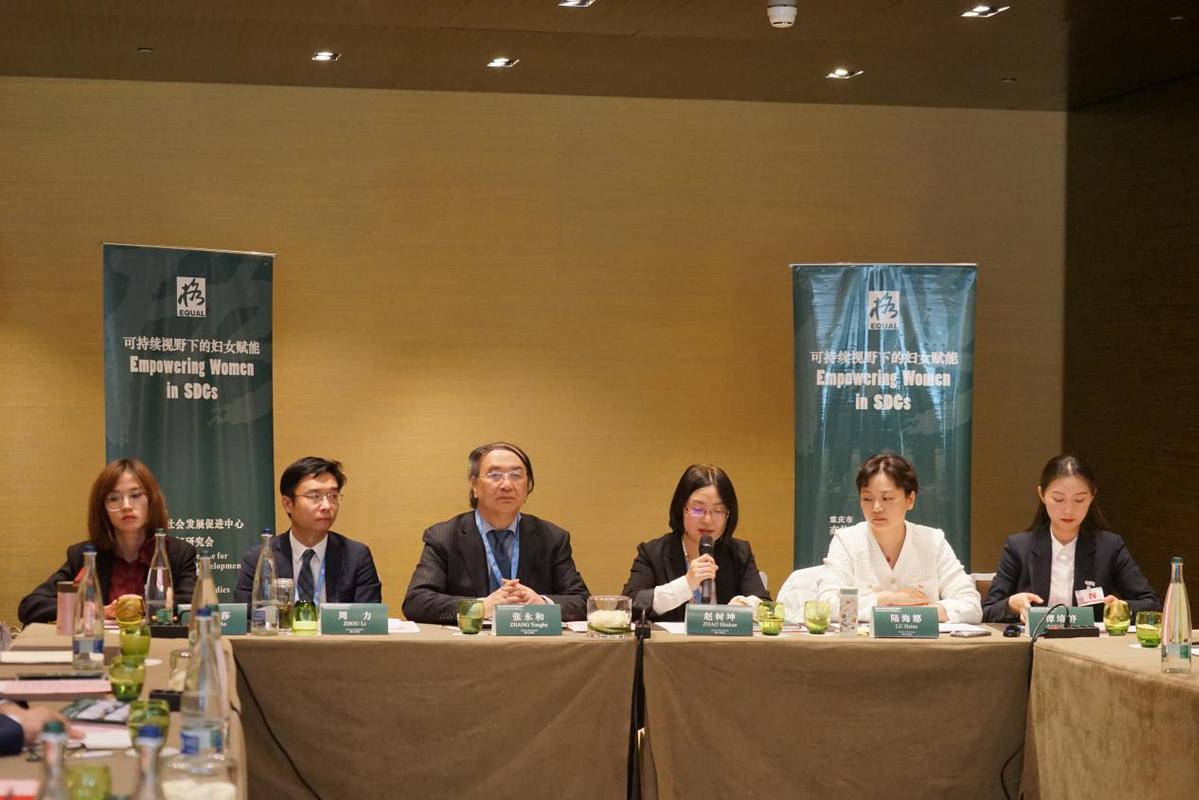
Experts speak at a sideline event of the ongoing 52nd session of the Human Rights Council in Geneva, Switzerland on Monday. [Photo provided to chinadaily.com.cn]
March 15, 2023 -- China is empowering women by amending protection laws and eliminating discrimination to promote gender equality and social progress, experts said at a sideline event of the ongoing 52nd session of the Human Rights Council in Geneva, Switzerland on Monday.
Zhao Shukun, a professor from the Southwest University of Political Science and Law who chaired the event, said the rights of women is an important topic in the human rights sector. She said gender inequality, discrimination and violence against women, as well as development issues facing women in rural and poverty-stricken areas globally are systematic social problems that need to be tackled.
Tan Chunxu from the Chongqing Center for Equal Social Development said the international community started to focus on empowering women in the 1990s. The declaration and actions approved at the fourth World Women Conference in 1995 included content on women and the economy, which remain important to women's development in the world.
She said China has always stressed the development of women, and has released four State-level guidelines on women's development since 1995 to include women in the nation's overall economic and social planning. These guidelines benefit women in urban areas and those in the countryside.
She added women who have lost the ability to work, those with disabilities and those trapped in poverty at older ages have attracted great attention from the government in recent years, and poverty alleviation policies have also benefited formerly impoverished women in the countryside.
"As of the end of 2020, nearly 100 million people shook off poverty, half of them women," she said, adding China has also improved regulations on the protection of women's rights and channeled financial support to promote women's development.
Lu Haina, executive director of the Human Rights Research Center at Renmin University of China, presented the COVID-19 epidemic as an example, saying that women have borne more severe side effects from the epidemic related to their right to work, which aggravates gender inequality.
She added technologies such as big data and artificial intelligence have progressed significantly amid the epidemic, which changed people's working habits and workplaces themselves, which have had tremendous effect on women's right to work.
"However," she said, "most countries and regions take 'gender-blind' policies to resume social and economic development facing the epidemic, without any consideration of women's needs. From my perspective, it's necessary to secure women's right to work to help women gain economic independence, self-development and equality. It's also of great importance to let countries and regions of the world achieve a 'gender-responsive recovery' in the post-epidemic era."
She added China has good practices on promoting women's right to work through legislation. For example, the law focusing on women rights' protection approved last October added several terms on securing equal employment.
China's amended law on the protection of women's rights last year clearly defines discrimination against women by listing examples and systematically protects women in the whole life cycle, said Wang Sha, also from the Chongqing-based center.
She added the laws can be improved with more specific classification and definitions to avoid implicit gender discrimination, and that China can release more specific and tailored measures on protecting women's rights allowing for imbalanced development in different areas of the country.


